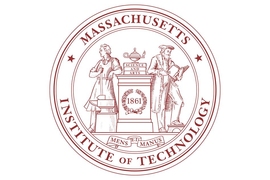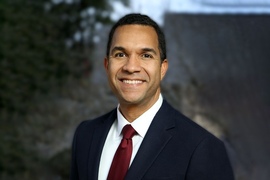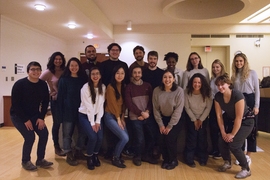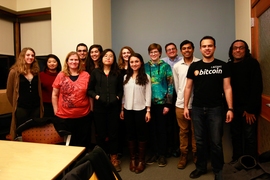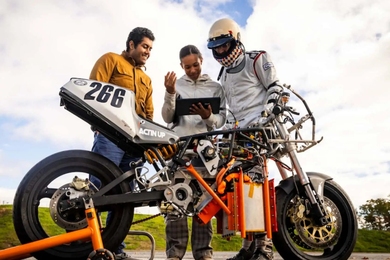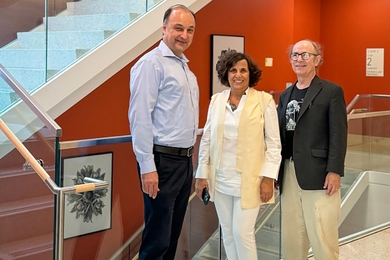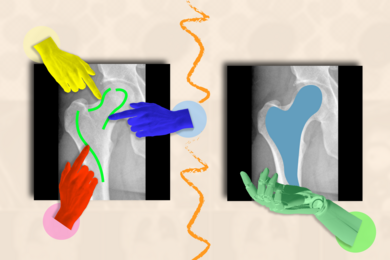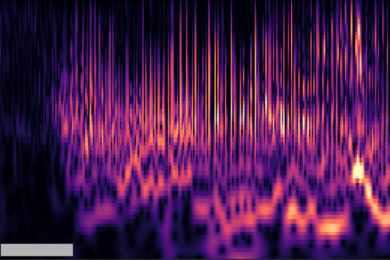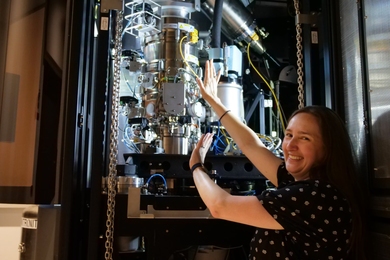The MindHandHeart Innovation Fund has awarded a record 24 projects and has a new name. The newly titled MindHandHeart Community Innovation Fund seeks to leverage the creativity and problem-solving skills of MIT students, staff, and faculty to increase awareness about mental health, build communities of support, promote life skills, foster resiliency, and advance diversity, equity, inclusion, and racial justice at MIT.
Sponsored by the Office of the Chancellor, the fund has supported 162 projects to date. “The MindHandHeart Community Innovation Fund is helping to fuel grassroots projects that are bringing our community together during this challenging time,” says Chancellor Cynthia Barnhart. “It is heartening to see our community’s creativity, compassion, and hard work on full display in all of our Community Innovation Fund projects.”
The MindHandHeart Community Innovation Fund also launched a special summer edition. MIT staff, faculty, students, and students’ spouses are welcome to apply by Aug. 5 with ideas to build community and resilience in light of the Covid-19 pandemic; advance diversity, equity, inclusion, and racial justice at MIT; support mental and physical health; encourage healthy sleep, eating, and exercise; spread humor and joy; and welcome new members of the MIT community virtually. Grants of up to $10,000 are available.
This spring, nine of the newly funded 24 projects aim to build community and promote mental health. Sponsored by the Department of Athletics, Physical Education, and Recreation (DAPER), the 12-session “Fitness and Resiliency: The Power to Thrive” course is teaching the science and application of fitness and resiliency skills so students have the tools to manage life’s stressors and achieve their personal goals.
“Now, more than ever, the importance of maintaining and developing personal resiliency is paramount,” says Sarah Johnson, primary wellness instructor at DAPER and project lead for the course design. “This course is designed to teach resiliency concepts, such as the power of gratitude, growth mindset, identifying and leveraging one’s personal character strengths, and more. It will be an honor to teach and connect with students around these concepts, in addition to learning from and supporting each other, during this time of physical distancing.”
Organized by the Muslim Students' Association and the Office of Religious, Spiritual, and Ethical Life, “Muslim Mental Health Dialogues” is an event series sparking discussion about Muslim youth and mental health. PhD student and project lead Rabab Haider describes the event series, saying: “The goal of the Muslim Mental Health Dialogues Project is to facilitate honest conversations on mental health, wellness, and spirituality amongst the Muslims at MIT. We hope to create safe spaces within the community and promote meaningful and healthy dialog. Together, we're working to debunk myths and misconceptions that contribute to the perceived taboo of addressing mental health in our communities, answer questions and concerns, and provide resources to students seeking support or learning how to be better allies.”
Senior Fiona Chen’s “Loneliness and its Effect on Academic Performance” project consists of a research study designed to understand the effects of loneliness on academic outcomes. “The innovation fund has played an invaluable role in advancing my project,” says Chen. “Social science research projects often require substantial amounts of funding, but most funds only have grants available to PhD students or professors. I will be using the funding to recruit and compensate study participants — so without the innovation fund, the project would not be possible.”
This fall, the Department of Chemistry is launching their “Peer Mentoring Program” where current graduate students are matched with new graduate students in order to facilitate peer support and resource sharing. The Department of Biological Engineering (BE) is building out their “belong.mit.edu” website project with the aim of connecting the BE department during the Covid-19 pandemic and beyond. This summer, the Department of Earth, Atmospheric, and Planetary Sciences (EAPS) is bringing a conflict management training to their department as part of their “Conflict Management Training for the MIT-WHOI Joint Program and EAPS Community” project.
Sponsored by the Black Graduate Student Association, the “Self-Care in Community” initiative is sending a variety of care package kits to 50 of its members to support multiple dimensions of self-care, while supporting small Black-owned businesses during this time of economic crisis. “America’s Path Forward, Better Understanding Through Shared Experiences at MIT” is an inclusive civic technology that invites the entire MIT community to share questions and experiences they feel our nation must address, and participate in facilitated group discussions.“Voiceplace” is a student-driven interactive virtual environment where users can work, hold meetings, and connect.
Eight newly funded projects use art and storytelling to build community during the Covid-19 pandemic.
In partnership with the Alumni Association, juniors Emily Han and Amber Shen launched their “Sticker+Together” project to mail positive and affirming stickers to members of the MIT community. Organized by Active Minds, “Virtual Paint Bar” invites undergraduate students to paint images of campus together during a virtual paint night. The “Draw with Me” project consists of an informal weekly hangout for the MIT community to pause and refresh through drawing together online.
The “Calm Down with Coloring” project is bringing coloring books and pencils to the children and adults living in the Eastgate and Westgate residences. The “Happy Working from Home” project is engaging students in the Department of Electrical Engineering and Computer Science with virtual coloring events. The “Lumos” project consists of a series of workshops on making digital crafts.
Launching this summer, the “Staying Human Podcast” is a platform where MIT community members and prominent guests explore how to hold on to our collective humanity in this time of physical distancing. The “Stand-Up Comedy Class with Last Comic Standing’s Dan Crohn” is offering two classes in standup comedy to bring humor and joy to MIT.
Other projects include: “Asian Pacific Heritage Month,” a project to raise awareness of Asian American events and milestones through t-shirts and a digital campaign; “The Future is Latina,” a virtual event where a prominent Latina writer will speak to MIT’s Latina community; “Covid-19 Impact on Academic Well-being of Lab-based STEM Doctoral Students at their Research Midpoint,” an interview study that explores the disruption of the Covid-19 pandemic on the academic well-being of 30 lab-based STEM doctoral students; “Diaspora Recipe,” a website with recipes for healthy affordable meals that encourages students to stay connected to their heritages; “CovEd Continuing Education,” a virtual community connecting college students with low-income K-12 students in need of academic support during school shutdowns; “MIT Press Live! Virtual Author Talk Series,” a weekly virtual author talk series aimed at building vibrant online communities; and “Summer Yoga,” a weekly yoga classs for members of the Westgate and Eastgate residences.

